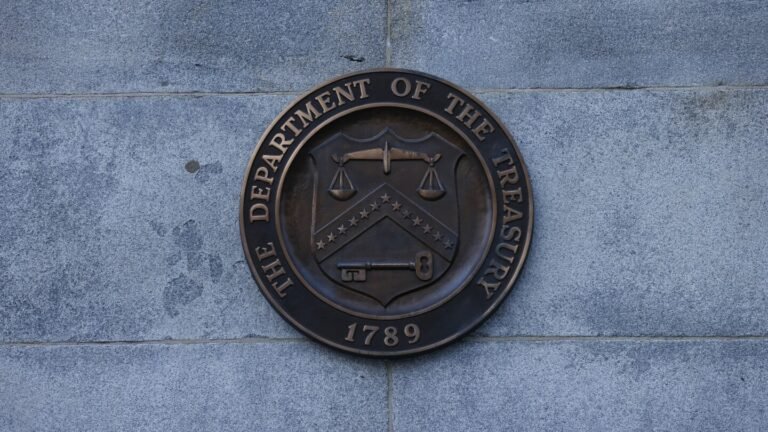The rule is the latest in a string of restrictions targeting strategic technologies.
The Treasury Department finalized a rule on Monday that bars U.S. persons from making certain investments in China-based entities that are working on semiconductors, AI systems, or quantum information technologies.
The rule takes effect on Jan. 2, 2025, and builds upon other restrictions the U.S. has placed on strategic technologies, including new export controls on quantum computers implemented in September and export restrictions on specific quantum labs in China implemented in May.
The rule is currently limited to China (including Hong Kong and Macau) but the department notes that more countries could be added in the future. It applies to transactions involving Chinese citizens who are not also U.S. citizens or permanent residents, entities located in China, or entities majority-owned by Chinese citizens, among other cases. The transactions covered by the rule include joint ventures, greenfield investments, certain forms of debt financing, and acquisition of equity, among others. Examples of activities exempted from the rule include investments in publicly traded securities and equity-based compensation. A press release from the department emphasized that the rule aims to address national security threats with limited effect on trade and commerce.
The rule prohibits transactions related to the development of quantum computers, networks, and sensing platforms, specifically, any covered entity that:
- Develops a quantum computer or produces any of the critical components required to produce a quantum computer such as a dilution refrigerator or two-stage pulse tube cryocooler;
- Develops or produces any quantum sensing platform designed for, or which the relevant covered foreign person intends to be used for, any military, government intelligence, or mass-surveillance end use;
- Develops or produces any quantum network or quantum communication system designed for, or which the relevant covered foreign person intends to be used for: networking to scale up the capabilities of quantum computers, such as for the purposes of breaking or compromising encryption; secure communications, such as quantum key distribution; or any other application that has any military, government intelligence, or mass-surveillance end use.
For some allowed transactions relating to the design or fabrication of integrated circuits and certain AI technologies, the rule requires U.S. participants to notify the department within 30 days of the transaction taking place. There is not an analogous notification provision specific to quantum technologies.
Asked in an interview how the rule might affect the quantum industry, Quantum Economic Development Consortium Executive Director Celia Merzbacher said U.S. companies might view it as a helpful measure, saying she could picture them thinking something like, “Thank you, Uncle Sam, for squelching investment in my competitors overseas.”
However, Merzbacher added that U.S. investment in quantum technology operations in China is already quite limited. Accordingly, a main effect of the rule is that it reinforces a sense that investing in China is risky. “Anything that adds risk is a black mark for an investor,” Merzbacher said.
During the rule drafting, the Treasury Department rejected a request to exempt quantum computers with medical or geological applications, saying that the development of such technology would nonetheless “likely contribute to a country’s capability to develop a cryptographically relevant quantum computer, among other applications, with acute national security implications.”
The rule is the final step in implementing an executive order issued by President Joe Biden in 2023. Meanwhile, some lawmakers in Congress have for years been pushing to implement such investment restrictions in law, with the exact scope a topic of heated debate.
House CCP Committee Chair John Moolenaar (R-MI) praised the rule as a “strong but long overdue step” in a press release. “Congress should build on these rules and address a broader set of technologies and transactions that threaten our national security,” he added.
Sen. Bob Casey (D-PA) also celebrated the rule, arguing that it is a “good start” that ought to be followed up by passing the Outbound Investment Transparency Act that he is cosponsoring with Sens. John Cornyn (R-TX) and Dan Sullivan (R-AK). The senators have proposed including the bill in the latest National Defense Authorization Act, which Congress aims to finalize this year.
House Financial Services Committee Chair Patrick McHenry (R-NC) said he appreciated the narrow focus of the rule and urged Congress to use caution in expanding it. “I remain skeptical of a sectoral approach to regulating outbound investment,” Henry said. “U.S. outbound investment to acquire Chinese companies enjoys overwhelming bipartisan support, as proven most recently by congressional action to wrest control of TikTok away from ByteDance.” He suggested that the U.S. rely more on sanctions rather than investment restrictions to avoid unintentionally supporting “Chairman Xi’s crackdown on Western influence in China.”
The spectrum of views on outbound investment restrictions is summarized in a report published by the Congressional Research Service in August. “Some members support more restrictions than [Biden’s 2023 executive order], while others have raised concerns about the scope of new rules and whether they could discourage investment in the U.S. market or erode U.S. competitiveness,” the report states. Other technology areas that lawmakers have eyed for outbound investment restrictions include hypersonics, satellite-based communications, networked laser scanning systems, and large-capacity batteries, among others.

